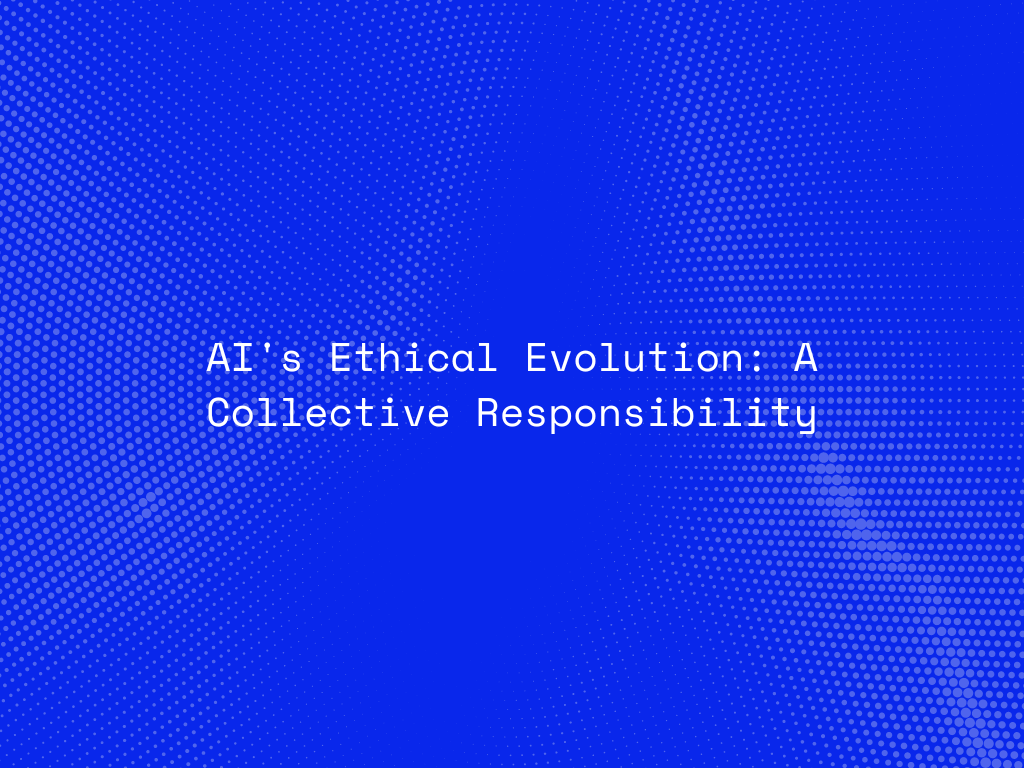Artificial Intelligence (AI) has rapidly evolved, becoming an integral part of various industries and everyday life. As AI continues to advance, the ethical implications of its development and deployment are becoming increasingly significant. The ethical evolution of AI is not solely the responsibility of developers or policymakers but requires a collective effort from all stakeholders, including businesses, governments, and society at large.
The Importance of Ethical AI
Ethical AI is crucial for ensuring that AI systems are fair, transparent, and accountable. Unethical AI can lead to biased outcomes, privacy invasions, and other societal harms. For instance, biased algorithms in hiring processes can perpetuate discrimination, while unchecked surveillance technologies can infringe on individual privacy. Therefore, addressing these ethical concerns is paramount to fostering trust and ensuring the equitable and beneficial use of AI.
Key Ethical Challenges in AI
-
Bias and Fairness: AI systems can inadvertently perpetuate existing biases if trained on biased data. Ensuring fairness requires diverse and representative datasets and rigorous testing for bias.
-
Transparency and Explainability: AI systems often operate as “black boxes,” making it difficult to understand how decisions are made. Transparency and explainability are essential for accountability and trust.
-
Privacy: The collection and analysis of vast amounts of data by AI systems raise significant privacy concerns. Robust data protection measures are necessary to safeguard individual privacy.
-
Accountability: Determining who is responsible for the actions and decisions of AI systems is a complex challenge. Clear accountability frameworks are needed to address potential harms caused by AI.
-
Employment and Economic Impact: AI’s automation capabilities can lead to job displacement and economic inequality. Strategies for workforce retraining and equitable economic policies are necessary to mitigate these impacts.
Connect With Us
The Role of Developers and Tech Companies
Developers and tech companies play a pivotal role in shaping the ethical landscape of AI. They must prioritize ethical considerations in AI design and deployment. This includes:
- Ethical Design Principles: Incorporating ethical principles into the design process, such as fairness, transparency, and user privacy.
- Diverse Teams: Promoting diversity within AI development teams to ensure a broad range of perspectives and reduce biases.
- Continuous Monitoring: Implementing mechanisms for ongoing monitoring and evaluation of AI systems to detect and address ethical issues.
The Role of Governments and Policymakers
Governments and policymakers are responsible for creating regulatory frameworks that promote ethical AI development and use. Key actions include:
- Regulation and Legislation: Developing laws and regulations that address ethical concerns, such as data protection laws and AI accountability frameworks.
- Funding and Research: Investing in research on ethical AI and supporting initiatives that promote responsible AI development.
- Public Awareness: Educating the public about the benefits and risks of AI and fostering informed public discourse on AI ethics.
The Role of Society
Society, including individuals and communities, also has a crucial role to play in the ethical evolution of AI. Actions that can be taken include:
- Advocacy: Advocating for ethical AI practices and holding companies and governments accountable for unethical actions.
- Education and Literacy: Increasing AI literacy to understand its impacts and engage in informed discussions about its ethical implications.
- Collaboration: Participating in multi-stakeholder dialogues and collaborations to shape the future of ethical AI collectively.
Connect With Us
Conclusion
The ethical evolution of AI is a collective responsibility that requires the active participation of developers, tech companies, governments, policymakers, and society at large. By working together, we can ensure that AI develops in a way that is fair, transparent, accountable, and beneficial for all. The future of AI ethics depends on our collective efforts to address the challenges and seize the opportunities presented by this transformative technology.




